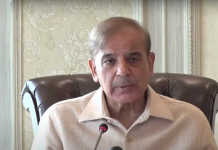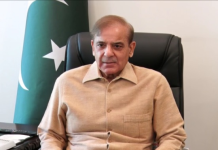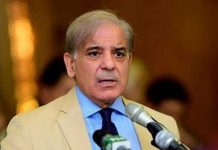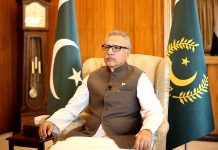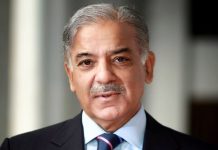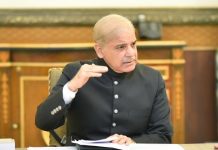Chairman of the Parliamentary Committee on Kashmir Shehryar Khan Afridi Wednesday said that the Judicial Murder of Kashmiri trader Afzal Guru was a question mark on so-called ‘secular India’ and his illegal hanging reflected that entire Indian elite was united in silencing the voices being raised for the freedom of people of Jammu and Kashmiri.
He expressed these views on the 9th martyrdom anniversary of Afzal Guru while talking to a delegation of Kashmiri activists led by Dr. Mujahid Gilani, President of Kashmir Youth Alliance, here at the Parliament House.
It merits mention here that Afzal Guru, a Kashmiri who was hanged on February 9, 2013 in India’s infamous ‘Tihar’ jail after being charged with false and fabricated allegations of abetting the attack on the Indian Parliament in 2001.
Guru was arrested in December 2001 despite having found innocent in the entire case. Indian police could not find any concrete evidence against Guru who was awarded capital Punishment by Indian judiciary just to appease the Indian extremists who were protesting to question the failure of Indian government arrest the real culprits of attack on Indian parliament.
Shehryar Afridi said that the Indian Judiciary had become an extension of the extremist Hindutva regime and its judgements in Afzal Guru, Babri Masjid, Maqbool Bhat and other similar cases without any evidence had proved the fact.
“Unfortunately, the judiciary and legal; fraternity in India are working hands in glove with the extremist Hindutva thugs. The Hindutva extremists target the Kashmiri people and once they move courts, the saffron judiciary and lawyers fraternity work to provide legal cover to the oppression meted out to the Kashmiris and Muslims of India,” he added.
Shehryar Afridi said that the verdict of Afzal Guru itself acknowledged the fact that there was only circumstantial evidence against Afzal Guru.
“Under no law, anyone can be awarded capital punishment. The judgement was awarded to hang Guru just to appease the Hindutva extremists of India. His body was never returned to his family and he was buried in a lone corner of the Tihar Jail. His execution was carried out in haste and without prior information to his family. Mass curfew and internet shutdown was enacted in the IIOJK (Indian Illegally Occupied Jammu and Kashmir) to stop people from coming out on the roads against the unjust decision,” he said.
Afridi said that the world also failed to act to the state oppression of India against Kashmiris though the Hanging of Azal Guru was condemned by Amnesty International and various other Human Rights Organizations who had termed the hanging as a new trend to executions in secrecy.
Shehryar Afridi said that the hanging of Afzal Guru to satisfy the collective conscience of the people of India was a miscarriage of justice.
“Afzal Guru was a non-violent Kashmiri making his bread and butter through business. He left behind a wife and a son who lost their respective husband and father to the unfair Indian injustice system,” he said.
Afridi reiterated that the People of IIOJK were not the children of a lesser God and they should be given their fundamental rights. He maintained that the voices from IIOJK were being curbed and anyone who spoke for humanity was arrested and charged under different draconian laws which had already been termed as black laws by International organizations.
“The Judicial murder of Afzal Guru and Maqbool Bhat are evidence that how Indian judiciary has become a slave to the Hindutva extremists,” he added.
Lauding the efforts of Kashmir Youth Alliance, Sherhyar Afridi said that it was mandatory for any nation to know and remember its heroes who had sacrificed their lives for the freedom of their nations.
“It is a duty of all of us to commemorate the days related to Kashmir and Kashmiri Heroes and the youth needs to be taught about their heroes too. A monument of Kashmiri Leadership of IIOJK and a museum of the Martyrs of Kashmir will be constructed in Islamabad to project the real voices of IIOJK,” Afridi added.

